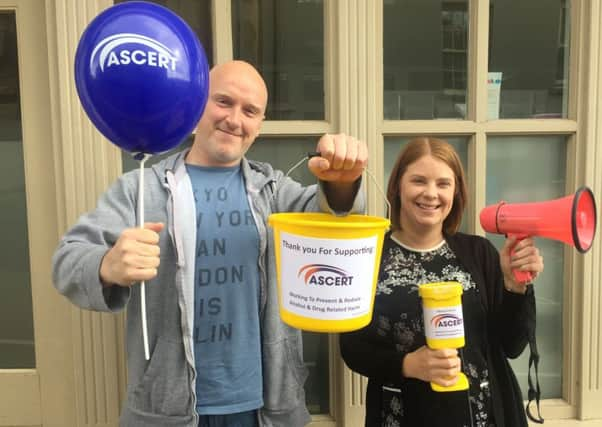Help make your change count


Volunteer collectors are needed from 9am and all funds raised will be used to prevent and reduce alcohol and drug-related harm in the local community.
Ascert started out in 1998 as Lisburn Drug and Alcohol Project in response to community concerns about drug misuse around the city. Since then Ascert has grown to become one of the leading and best known providers of drug and alcohol support services in Northern Ireland with bases across Northern Ireland in Lisburn, Belfast, Magherafelt and Omagh.
Advertisement
Hide AdAdvertisement
Hide AdThe charity providing services across Northern Ireland that address the impact of alcohol and drugs related issues that affect people’s lives. They are committed to ensuring individuals, families and communities are supported in the most effective way to deal with the challenges they face
Ascert is contracted by the Public Health Agency to provide a Workforce Development Training Programme for the workforce in the statutory and voluntary sectors.
Speaking ahead of the street collection, Jenay Doyle, Ascert’s S Fundraising Coordinator, stated: “We are excited to be holding our Cookstown street collection on Saturday, August 26.
“We would ask that anyone who could spare an hour or two to help with the collection and make a real difference in your community to contact us on 0800 2545 123.
Advertisement
Hide AdAdvertisement
Hide Ad“Ascert relies heavily on voluntary funding and donations to provide our vital local services which is why your support would mean so much to us. You will be helping us to make a real difference in relation to how drugs and alcohol impact on people, families and the wider
community.”
Drugs are chemicals that affect the way your body works. Once taken the drug passes from your body into your brain and once inside your brain, they can change the messages your brain cells are sending to each other, and to the rest of your body. They do this by interfering with your brain’s own chemical signals.
Alcohol is a depressant, not a stimulant which means that it slows down the brain and the central nervous system’s processes. Experts estimate alcohol is responsible for at least 33,000 deaths in the UK each year. Rates of liver disease aare rising in the UK.